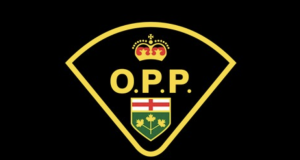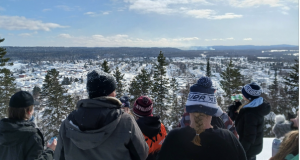From the early days before Confederation, Canada’s earliest settler leaders treated Indigenous peoples as others. They created systems that were designed to assimilate Indigenous peoples and strip them of their identity and their culture. One of the most widely recognized parts of this systemic discrimination was the development of residential schools. Supported by Canada’s first Prime Minister, John A. MacDonald, the Department of Indian Affairs and various denominations of Christian churches, the government pursued a policy of “aggressive assimilation” recommended in a report by MP Nicholas Flood Davin that provided the basis for creating the residential school system in 1879.
Over a period of almost 150 years, the Government of Canada kidnapped 150,000 Indigenous children and sent them to residential schools, painstakingly detailed through the work of the Truth and Reconciliation Commission. Children across the country were relocated, often very far from home, where they faced physical, sexual, and psychological abuses, all while having their culture and their language stripped from them. The government would apologize for these abuses in 2008, but the horrors of the system would become even more pronounced in public discourse in 2021, with the discovery of mass unmarked graves at the former Kamloops Indian Residential School. This discovery would ignite further searches at other former residential school, such as in Marieval and Cowessess. In 2022, Parliament would finally, justifiably, and unanimously call it a genocide as articulated in Article II of the United Nations Convention on Genocide. Also in 2022, the Pope would issue an apology for the Catholic Church’s role in the residential school system. Some estimates place the number of children who had died at residential schools in the range of about 6,000, but both government and church records are incomplete, and we may never know the full number of children who perished at these schools.
All of those details are important, but merely scratch the surface of the exhaustive research found in the Truth and Reconciliation Commission report. And while it remains vitally important that we acknowledge this genocide, residential school denialism remains a significant problem. There are people at the highest levels of government, such as a notable senator, who have tried to minimize the impact of the residential school genocide and called the horrific crimes “well-intentioned.” Winnipeg serial killer Jeremy Skibicki had posted residential school denialism on social media.
Kimberly Murray, the Independent Special Interlocutor for Missing Children and Unmarked Graves and Burial Sites associated with Indian Residential Schools, following the publishing of a report on the subject, found that residential school denialism was actually increasing. She said “Denialism is violence. Denialism is calculated. Denialism is harmful. Denialism is hate.” And she’s right. Denialism is a form of direct discrimination towards Indigenous people, a form of gaslighting of their lived experiences. It merely protects the colonial status quo, and is designed to misrepresent actual fact and undermine public confidence in the process of seeking truth and reconciling the shared history of Indigenous and non-Indigenous people. Because of poor record keeping we don’t know the actual number of children who died at residential schools,
To that end, how do we combat denialism? Its important that we continue to implement the Truth and Reconciliation Commission’s Calls to Action, including Calls 71-76, which are specifically about locating potential unmarked graves, and Calls 62-65 ask for greater funding for education to help teach Canadians about the horrors of the residential school system. Further, MP Leah Gazan, who presented the motion to call the residential school system a genocide, has developed Bill C-415, which would add to the Criminal Code the offence of willfully promoting hatred against Indigenous peoples by condoning, denying, justifying or downplaying the harm caused by the residential school system in Canada. The bill is quite nuanced, and does carve out reasonable exceptions. True statements, if statements are relevant to public interest, those intended to point out hatred toward Indigenous Peoples or religious opinions would be exempt. The government made a similar adjustment to the Criminal Code to prohibit communicating a statement which “wilfully promotes antisemitism by condoning, denying or downplaying the Holocaust.” While the Justice Department hasn’t produced any charges or prosecutions or confirmed any from their provincial counterparts, being part of the Criminal Code allows charges to be brought forward to the worst form of holocaust deniers.
The best way to combat ignorance will always be through education and understanding. But in those most extreme cases that allow hate to foment, maybe criminal charges should be considered.
- Reflecting on the Challenges and Accomplishments of 2024 - December 19, 2024
- Carol Hughes – CRA Hack Needs a Thorough Investigation - November 13, 2024
- Carol Hughes – Is it Time to Get Tougher on Residential School Denialism? - November 5, 2024
 Wawa-news.com Local and Regional News
Wawa-news.com Local and Regional News

